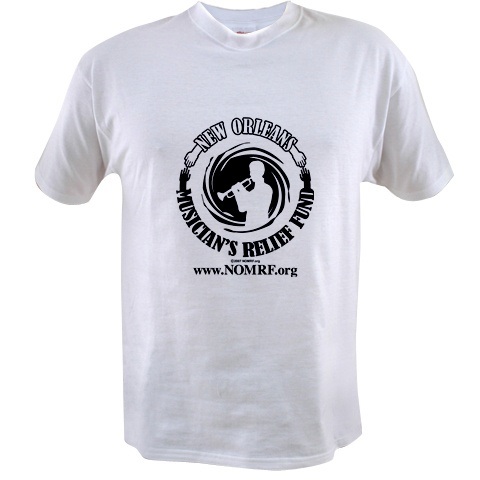
Reprinted by STEVE WHITWORTH
For The Telegraph
Jelly Roll Morton. Louis Armstrong. Fats Domino. Pete Fountain. Al Hirt. The Neville Brothers.
If New Orleans is the birthplace of American music, then Dr. John is perhaps the leading conservator of that seminal tradition.
But even though he's a piano virtuoso, don't mistake the good doctor for some stuffy highbrow. After all, one of the many nicknames for New Orleans is "The City That Care Forgot."
"We play wherever they are all over the world," Dr. John said in a recent telephone interview. "If they hire us, we're there.
"We try to do the best we can to represent our hometown. We try to bring the people in to have a good time."
Indeed, Dr. John is just the latest in a long line of legendary musicians from the Crescent City who put the "good times" in that quintessential New Orleans expression: "Laissez les bon temps rouler." That means "Let the good times roll" for you non-French speakers.
And from the fabled city at the mouth of the mighty Mississippi River, Dr. John will appear some 1,300 miles upstream this weekend when he plays two sold-out shows Friday and Saturday nights at the Argosy Casino.
Dr. John is the stage name of Malcolm John "Mac" Rebennack Jr., born in New Orleans in 1940. He began his career as a session musician in New Orleans in the 1950s under that name, usually playing guitar. But after a shooting incident injured one of his fingers, he switched to piano, learning under the tutelage of one of the city's greatest players, the late Professor Longhair.
Starting in the late 1960s and into the 1970s, Dr. John adopted his stage name and crafted the persona of "The Night Tripper," blending voodoo references with elaborate costumes and psychedelic influences. He perhaps is best known for his 1973 hit, "Right Place, Wrong Time."
As he has aged, his onstage persona has mellowed, but he remains true to the mission of the New Orleans sound.
"The music makes me feel good, and it's my job to make the people feel good," he said. "We wanna get up and dance and have a good time. If we get the people dancing and having a good time, we've done our job all right. If we don't do that, we're the ones that messed up. That's how we look at it."
When Dr. John says "we," he's referring to his longtime backing band, which includes Herman "Roscoe" Ernest III on drums and percussion, David Barard on bass and John Fohl on guitar.
"It's the same backing band I've had for a gang-and-a-half of years," Dr. John said in his trademark raspy New Orleans drawl. "Herman and David have been with me from the lower 9th Ward. John is the new guy in the band; he's been with us for five or six years.
"It's a funky band. We have a good time. We play anything. We don't just play the hits. Every night, I play different shows."
In fact, Dr. John says the band has a book with 191 songs it can play on any given night. As the interview was taking place, he was picking out the songs for that night's show in Trenton, N.J.
"I'm writing the set list for tonight. The set list is Number 141, then up to Number 174, then Number 2, Number 7, Number 11. It makes it a shorter method for the list that way."
Dr. John's repertoire spans the entire history of New Orleans music, as perhaps best illustrated on his classic 1992 album, "Goin' Back to New Orleans." He has either worked with or covered the material of all the great musicians mentioned at the beginning of this article.
When Dr. John tickles the ivories, he evokes the turn-of-the-century New Orleans cathouses where Jelly Roll Morton rose to fame. His baritone echoes the magical voice of Louis Armstrong, and the syncopated rhythms of Dr. John's music incorporate the "second line" style made famous in the city's colorful funeral processions, as well as the Afro-Caribbean beats that drive the frenetic marches of its "Indian tribes" during Mardi Gras season.
And though Dr. John's music is mostly about the parties and the good times, his love for New Orleans shows just as much in his sorrow about the devastation visited on the city by Hurricane Katrina in 2005. He's angry at the politicians who he feels failed the city's residents both before the storm and in its aftermath, reacting bitterly to the latest news out of South Louisiana last week.
"I agree the governor (Kathleen Blanco) ought not to run again," he said. "I agree the (U.S. Army) Corps of Engineers has been milking the city of New Orleans for $8 million a year for 50 years. The guy who wrote 'Walkin' to New Orleans' (Fats Domino), his whole hometown is gone. I'm not thrilled with the mayor (Ray Nagin); I wish he wouldn't have run again. I'm not thrilled with the president. I'm not thrilled with any of the politicians, period.
"I'm not thrilled with the big organizations that come down, saying they're gonna help. The only people who are doing something are the small organizations who come down and do things. The small organizations help people. The big organizations help themselves get a lot of publicity, but all the money goes to the red tape."
But for those who want to help the people of New Orleans with donations, Dr. John says there are several organizations doing worthwhile work. Nearest to his own heart are the New Orleans Musician's Relief Fund and the New Orleans Musicians Clinic.
"Those help the musicians get established to bring the music back," he said.
And bringing the music back to New Orleans - and to Alton and the world, for that matter - is what Dr. John is all about.


No comments:
Post a Comment